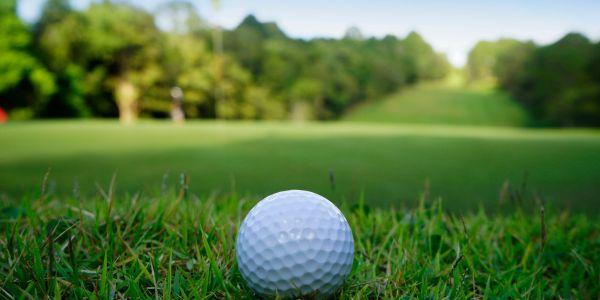
Would you describe yourself as a worrier on the golf course?
Do you feel that your “worrying” hurts your play during competitive rounds?
Worrying can creep in at any time in a competition and lead to playing tight on the course…
You may worry about the weather, course conditions, and players in your group the night before a tournament. Worrying the day before can cause you to lose sleep and feel tired at the start of the tournament.
In the clubhouse, before the start of a competitive round, you may worry about whether you are technically or mentally prepared. You might be working on changing your mechanics in the past few weeks and fear your swing will be off.
Some golfers are the most anxious at the start of a round. Since there are so many unknowns at the beginning of a tournament, you might feel like a bundle of nerves.
Some players feel positive when playing well until they bogey their first hole. When your ball flies off in an unintended direction, or you miss a series of putts, you may worry that your game will unravel.
You may be preoccupied by the leaderboard towards the end of a round…
Whenever you face a critical putt, you worry about missing putts and falling out of contention. This type of worry can be overwhelming, increase pressure, and cause you to believe you must make the “perfect” shot.
You might worry about the field or competing against a rival. Worrying about who you are competing against takes the focus off you and your game and places your attention on something uncontrollable: your opponent’s score.
Worry can significantly impact your golf game, affecting both your physical performance and mental focus.
Four Negative Effects of Worry
- Physical Tension—Worry causes muscles to tense up. Tense muscles limit flexibility, fluidity of your swing, and breathing, resulting in less power and accuracy.
- Loss of Focus—Worrying about repeating past mistakes or messing up future shots distracts you from the present moment. Peak performance requires a high level of concentration.
- Ineffective Decision Making—Playing your best golf requires commitment to your shot and trusting your ability to execute that strategy. Worry causes you to second-guess your strategy or even misread the course.
- Reduced Confidence—Every golfer understands that confidence is crucial during competitive rounds. When you doubt your abilities, you throw off your entire game, and performing under pressure becomes infinitely more difficult.
Heading into the 2024 PGA Championship, Scottie Scheffler felt mentally ready to compete despite facing two formidable rivals in Rory McIlroy and Brooks Koepka, who have been on top of their games.
Scheffler, who has not played in almost a month, insists he is calm, confident, and prepared for the moment.
SCHEFFLER: “I think mentally, [I am] just being as present as I can and be committed to my shots, not worrying about the results of things but just being committed to what I’m doing”
Worry is a mental place that only exists in the future. The more you can stay present in the moment, the more resilient and effective you will be as a golfer.
Most of the time golfers worry about their scores and how others will perceive them.
Recognize your mental traps. Just as you recognize the sand traps and hazards on the golf course, knowing your mental traps helps you avoid worry and stay immersed in your game.
Related Golf Psychology Articles
- How to Handle Disappointment During a Round of Golf
- How to Regroup After a Bad Round of Golf
- Why Some Golfers Expect to Play Poorly
- Subscribe to The Golf Psychology Podcast on iTunes
- Subscribe to The Golf Psychology Podcast on Spotify
Golfers Mental Edge Program

“The Golfer’s Mental Edge 2.0” is new in 2021. This audio and workbook program helps you overcome a lack of focus, low self-confidence or other mental game obstacles on the course that prevent you from reaching your true potential in golf. Learn the secrets to better focus, confidence and composure that Junior, Collegiate and Tour Professionals use to WIN!
“My confidence level has never been higher! I can’t tell you how clearly I was able to think during all four rounds of tour-school. The simple game plan you gave me really focused me. My confidence level has never been higher during a tournament. No matter how much pressure was on, I was able to control my thoughts and execute. Thank you, Dr. Cohn!”
~Patricia Baxter-Johnson, LPGA Tour